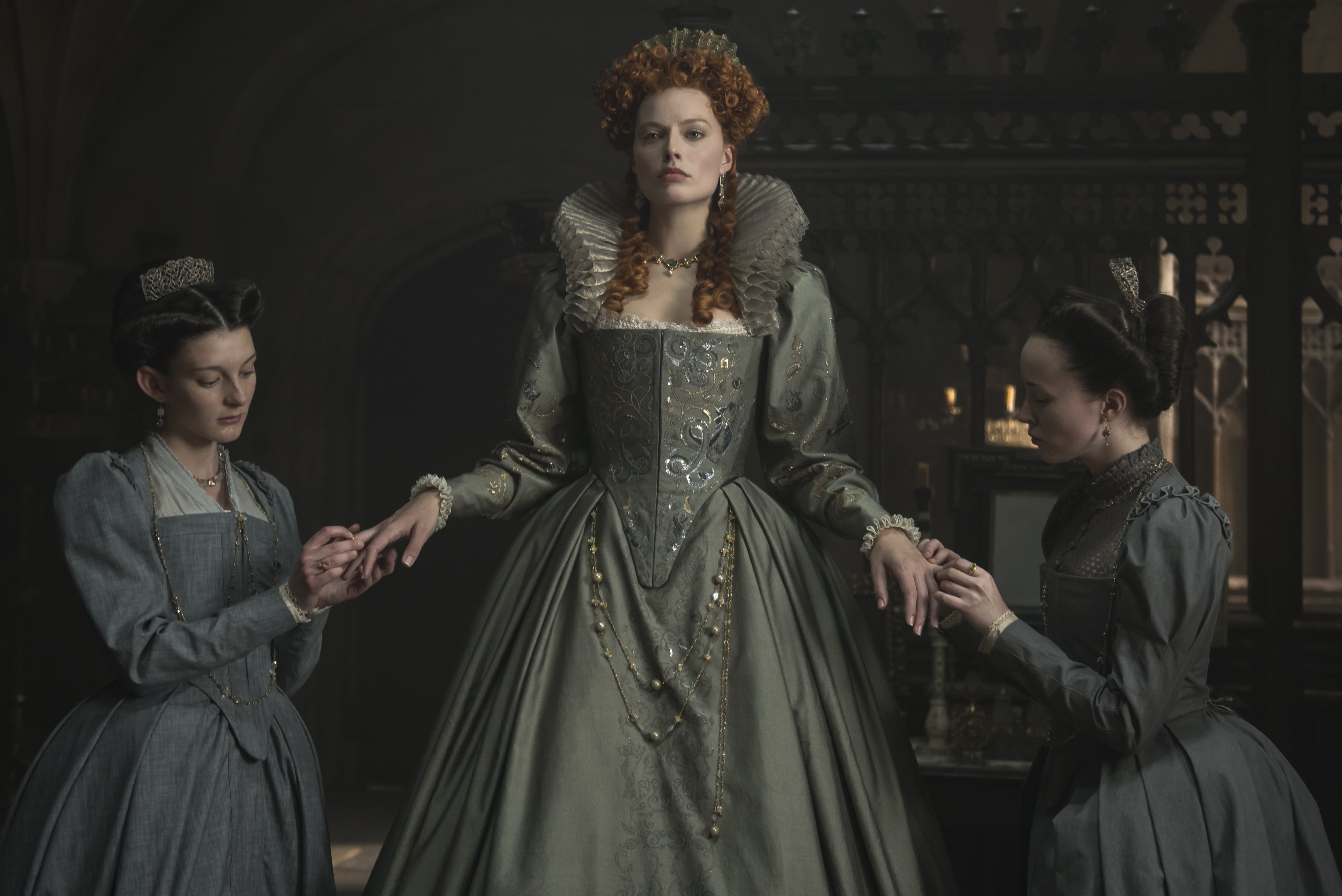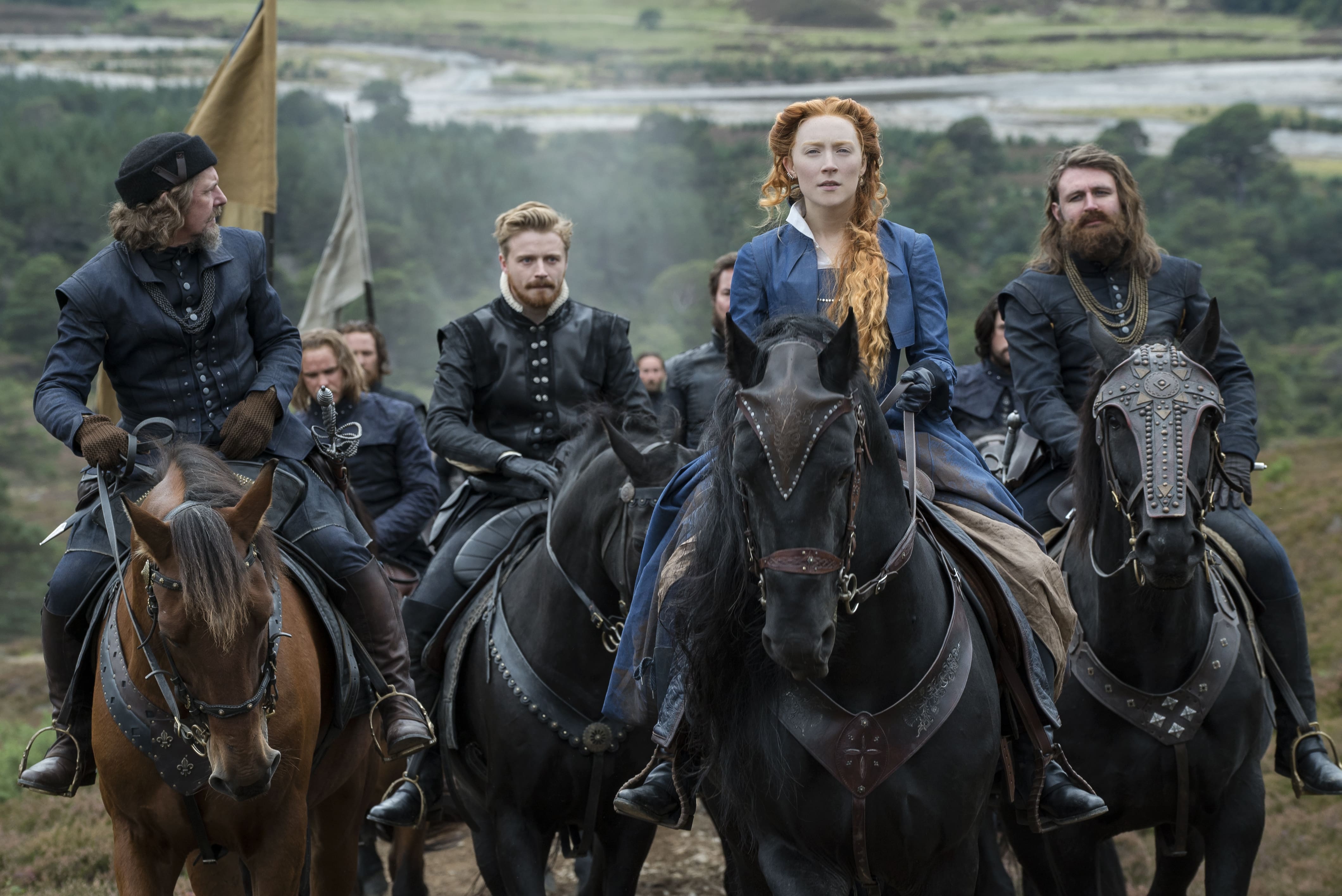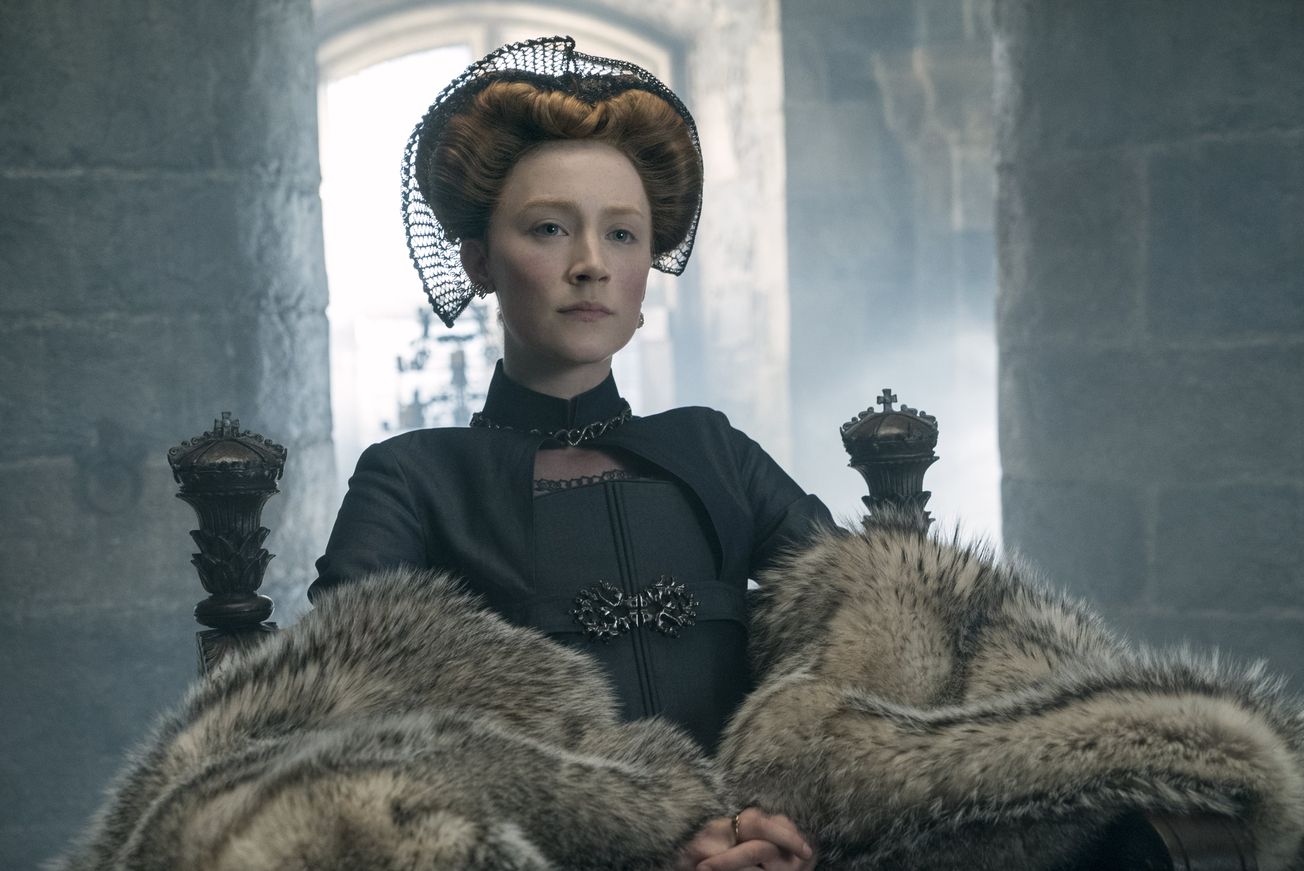By Caitlin Price, Second Year, English
The second film of the year already to focus on historic British queens after The Favourite (2018), this period piece explores the unconventional reigns of Mary Queen of Scots and Elizabeth I after the former returns to Scotland to stake her claim to the throne.
Mary Stuart’s life was destined for the big screen. Her story reads like a screenplay with betrayal, murder and intrigue galore. Josie Rourke’s Mary Queen of Scots places the relationship between Mary Stuart (Saoirse Ronan) and Queen Elizabeth I (Margot Robbie) at the centre of the drama.
Youtube / Universal Pictures UK
Mary and Elizabeth, like the lands they rule, resemble one another and the film plays with the pleasing symmetry of the two historical characters: they are ‘sisters’ and Queens of 16th century nations traditionally ruled by men. But Mary’s Catholicism and claim to the English throne drives a sizeable wedge between the pair, and what could have been a meaningful alliance becomes a rivalry.
Ronan and Robbie capture the mutual fascination between the pair. The Queens send portraits of themselves to one another which are held up like mirrors. However, as the film progresses, they increasingly diverge from one another. Mary comes to rely on strength and passion, Elizabeth on wisdom and counsel. Ultimately, they choose different ways to secure their power: Mary produces an heir to both the English and Scottish thrones whereas Elizabeth rules alone.

Photo courtesy of Universal Pictures
Mary Queen of Scots is a story of politics and power that continuously examines gender and sexuality. Being a Queen in a patriarchy was difficult and it seems to be the role of John Knox - played by a mass of hair with David Tennant somewhere beneath - to remind us of this fact. Tennant’s voice rarely falls below a shout as he brings to life the influential, fanatical Scottish preacher who embodies both the puritanical resistance to a Catholic monarch and the entrenched, misogynistic distaste for a female ruler.
The perceived dichotomy between men and women is repeatedly challenged throughout the film. Mary’s secretary, David Rizzio (Ismael Cruz Cordova), tells Mary that he identifies to her more as ‘a sister’ than a brother and Elizabeth chooses ‘to be a man’ in her leadership style. For a period piece, Mary Queen of Scots has a striking relevance to modern day concerns and director Rourke uses her film to break down some contemporary boundaries. She uses colour-blind casting to increase on-screen diversity, and includes menstrual blood and cunnilingus as she fights to normalise women’s bodies and women’s pleasure.

Photo courtesy of Universal Pictures
Ronan makes for a fierce Mary, indomitable in the face of great adversity. Robbie also gives a nuanced performance, capturing Elizabeth’s strength and vulnerability as she is driven to forgo family in order to rule independently. Politics and personal matters are inextricable, and the film captures the claustrophobia of the Courts through a complete lack of privacy and interiors which are luxurious, yet dungeon-like in their aura. The Queens’ lives were played out before their Courts and Mary’s execution, a scene which bookends the film, is highly performative.
Josie Rourke’s background in theatre - this is her first work in film - shows. The battle scene resembles stage combat, and the barn in which Mary and Elizabeth meet face to face for the first time is theatrically hung with white sheets. The theatricality, more positively, extends to the costumes, hair and makeup – all of which are exceptional and Oscar nominated.
Fun film fact: Saoirse Ronan in Mary, Queen of Scots is the great great grandma of Olivia Colman in The Favourite.
— Hanna Ines Flint (@HannaFlint) January 17, 2019
Mary Queen of Scots brings a flourish of modernity to a 16th century tale. It may not have the quirkiness of The Favourite (2018), or its remarkable ability to garner awards, but it forms an engaging tale out of the past - a tale that is communing with the present. We can only hope that Josie Rourke makes subsequent forays into the world of film.
Featured Image Credit: Photo courtesy of Universal Pictures
What other Queens would you like to see in leading roles of films?
Facebook // Epigram Film & TV // Twitter








